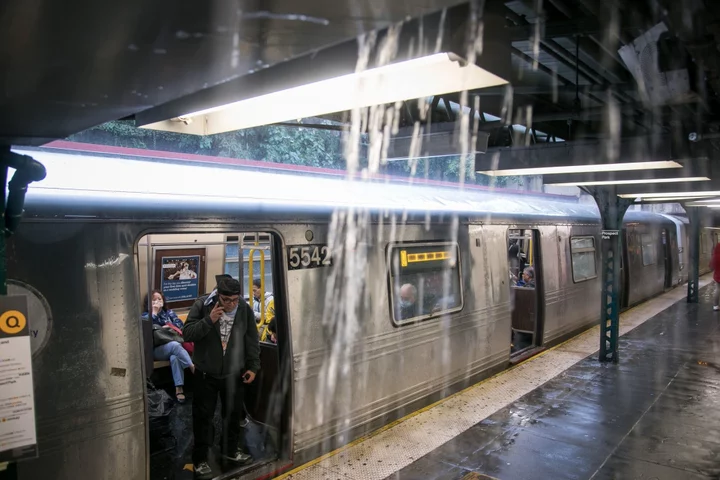Some projects designed to make New York City’s transit system more resilient in severe weather are behind schedule or over budget, according to an audit released on the same day that flash floods forced the closing of several subway lines.
While the Metropolitan Transportation Authority has ramped up flood-protection projects after Superstorm Sandy in 2012 caused about $5 billion of damage, progress has fallen short, according to an audit by New York state Comptroller Thomas DiNapoli released late Friday.
In one example cited, only two of six critical subway stations the MTA determined needed to be more watertight were completed, according to the audit. Construction on a rail tube for the F subway line that runs under the East River between Manhattan and Brooklyn and was damaged by Sandy was originally set to begin in June 2014. It didn’t start until July 2020.
“When resiliency projects are not completed and brought in on time or within budget, resources are not available for other projects and the system remains at risk,” according to the audit by DiNapoli, a Democrat.
The report comes after more than 8 inches (20 centimeters) of heavy rain pummeled the New York City area last week, turning highways and roads into rivers and sending waterfalls flowing into subway stations. Several subway lines were closed, and Metro-North Railroad was unable to provide service out of Grand Central to the city’s northern suburbs.
Read more: NYC streets and subways flooded by downpour, emergency declared
“The MTA has spent the last 16 years dealing with and learning from increasingly significant storms, constantly enhancing our infrastructure to the point that when the region was saturated with historic rainfall and flooding on September 29-30, crews were able to resume full service while the storm continued to drench the area,” MTA spokesperson Michael Cortez said in a statement.
The audit also found that the transit agency failed to adequately document equipment inspections. The MTA missed 51 of 72 inspections during a 20-month period at fan plants, which are large vent gratings on top of shafts connected to transit tunnels. The report also noted that plans for some extreme weather events were inconsistently activated.
DiNapoli’s audit covered the period from April 2009 to August 2022 and reviewed 23 of 221 capital projects aimed to repair or prevent damage from severe weather.

